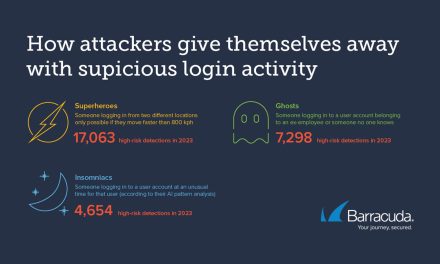… or credit card application, employability or even your friends. Here are some tips to keep your digital persona wholesome.
Do you have an anonymous account online? According to some studies, more than three in 10 users in the Asia Pacific region (APAC) have admitted to having a social media profile that is not based on their real names, photos, and personally identifiable information (PII).
Believe it or not, the power of anonymity is being used the most in South-east Asia (35%) followed by South Asia (28%) and Australia (20%), across platforms such as Facebook (70%), YouTube (37%), Instagram (33%), and Twitter (25%) in terms of incidence.

According to Kaspersky researchers, the use of such anonymous details is two-pronged. Individuals can chase their passions and harness free speech without affecting their real identity’s digital reputation, but at the same time they can also conduct naughty activities under the digital guises.
Although 30% used an anonymous social media account for the fairly innocuous activity of sharing information about their favorite artists and interests, 22% were also engaged in online stalking.
Brand reputation at stake too
APAC consumers may be increasingly aware of the reputation they build online, and as a consequence, they will also be critical of the digital reputation of the businesses they patronize. On this basis, slightly less than half of such people will check the social media accounts of a brand or a company before purchasing their goods or services. Also, 48% asserted that they would avoid companies that have been involved in a scandal or had received negative news coverage online.
According to the firm’s General Manager for South-east Asia, Yeo Siang Tiong, consumers now hold companies accountable for their online reputation, in the same way that individuals’ behavioral patterns on social media are now being used to determine one’s credit score, to screen one’s employability, and even to either reject or approve one’s Visa request. “With these real-world repercussions, we must learn a fine balancing act between privacy and security to be able to secure our increasingly crucial digital reputation,” he said.
To help consumers to defend their online reputations, Kaspersky recommends five important steps to always keep in mind:
- Your notorious persona will haunt you: Remember your digital reputation is also linked to your personal reputation. Everything that is posted on the internet remains on the internet, including harsh and radical judgments. These can lead to unpleasant explanations at the workplace or during hiring processes.
- Safeguard your disclosures: To protect your digital reputation, it is better to be more cautious than to reveal personal information about yourself, especially on social profiles. Never divulge too much, stick to basics and share only things that are necessary and needed. The more your share, the more appealing you are to an attacker who is looking to steal your personal data or even your identity.
- Delete accounts and data: We all have dozens of accounts, many of which are barely used or forgotten. Many of them persist and any one of them could leak your information.
- Prevent personal data abuse: If any app asks for sensitive data, take a look at its privacy policy, which may (or may not) openly state that your data will be passed to third-party companies. Do not give apps more information than necessary. Think carefully about what they genuinely need and what they can do without. Remember that any information you hand over to apps is unlikely to remain completely private.
Finally, follow the standard data protection best practices: even with your best efforts in behaving well with your online personas, your data can still be stolen if you fall victim to any trojans, phishing and malware attacks. Keeping in tune with the cybercrime scene with CybersecAsia.net will expose you to a wide assortment of insights and tips to always stay ahead of ordinary people.

















